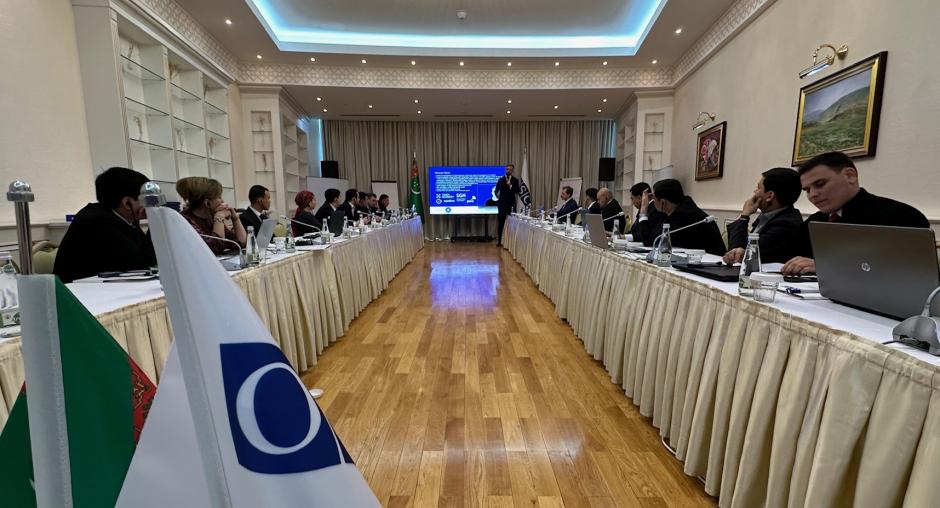Government officials from Turkmenistan receive OSCE-training on investigating blockchain-related financial crimes

On 27 and 28 November 2024, 22 officials from various government institutions in Turkmenistan, including the Prosecutor General’s Office, the Central Bank, the Ministry of Finance, the Financial Monitoring Agency, and the Ministry of Internal Affairs, participated in a specialized workshop on preventing and investigating the criminal use of virtual assets and blockchain-based finance. The event took place in Ashgabat and was organized by the Office of the Co-ordinator of OSCE Economic and Environmental Activities (OCEEA).
The two-day programme was designed to address pressing challenges in combating financial crimes in the digital space. Topics included blockchain compliance processes, analyzing anonymity features, using specialized tracing software, and exploring real-world case studies such as phishing attacks, cryptocurrency mixers, and cross-chain transactions. Day one featured practical sessions where participants created cryptocurrency wallets, explored the mechanisms of blockchain anonymity, and delved into case studies involving notable incidents, including the recovery of hacked social media funds. Day two continued with a detailed examination of real-life investigations, including ATM fraud and phishing schemes, and concluded with discussions on regulatory frameworks and cross-border collaboration.
"Equipping our partners with the tools and knowledge to trace and recover illicitly acquired assets is a cornerstone of our mission,” said Kurban Babayev, Economic Adviser, OSCE Secretariat. “The OSCE remains committed to fostering expertise that addresses emerging threats from virtual assets and blockchain technology.”
The workshop is part of an OSCE extra-budgetary project on “Innovative policy solutions to mitigate money-laundering risks of virtual assets”, funded by Germany, Italy, Poland, Romania, the United Kingdom, and the United States. The project supports OSCE participating States in building national capacities to mitigate criminal risks related to virtual assets.
